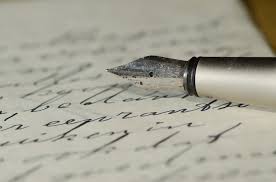Last week, I went to a concert in San Francisco with my roommate to see a folk artist in an 18+ bar. After an eventful late night drive of missed turns and near crashes with crazy city drivers, we entered the bar to see a room of people mostly in their twenties, spread lazily across a collection of high tables.
At the front of the room was a stage with the musical equipment already set up. As all of the tables were full, we decided to opt for sitting cross-legged on the wide expanse of floor in front of the stage. To our surprise, as the concert got closer to starting, more and more people began to migrate to the floor, until a room full of adults was sitting cross legged on the hard floor, looking up eagerly at the stage like children waiting excitedly for a show to start.
As I glanced around at hipster looking, twenty-something men sitting like equals with elderly couples and college students like myself, I felt like some beautiful levelling had occurred. Just this once, inside this darkened room, people of all different walks of life could simply breathe together and enjoy some peaceful music without worrying about anything else.
As the musicians began to perform, I noticed the woman next to me pull out a tattered notebook from her purse and begin to write. She drew beautiful pictures in the margins of her notebook that related to the song lyrics of the music playing, and writing in a beautiful calligraphic script, quoted some of the lyrics of that were being sung. Without trying to be too nosy, I became secretly obsessed with subtly glancing over at her journal throughout the concert, noticing that sometimes she would create webs from the lyrics she recorded, writing names or other words that I assume she associated with the lyrics from the song. The result was beautiful — a confusing and complicated jumble of words and jagged lines and illustrations creating a visual representation of her experience at the concert.
Observing this woman and her unique way of interacting with the live music was a very powerful experience. While it brought up many things for me — the ways that individuals differ in how we experience the world around us, the power of shared words, the fact that I wish I could draw better — I mostly came away feeling overwhelmed by how powerful handwritten things can be.
I personally love to handwrite, and my friends at Stanford laughed at me when they realized that I keep a planner. The standard response to this is, “Don’t you know what Google Calendar is??” Yes, I do. But to me, there’s nothing quite as satisfying as handwriting a to-do list and making a clean neat check in a handwritten box when I finish something I needed to do. It’s a feeling that Google Calendar can’t replicate. Each Sunday night, I sit down with my planner for about fifteen minutes, listen to my favorite music and fill in the pages for the next week, highlighting and creating task lists and reminders to myself. This time allows me to decompress, get ready for the next week, and feel like I’m getting a couple minutes just to connect back with myself.
What I love most about handwriting is how much it can express our individuality. The woman at the concert next to me drew tears falling from some of the letters of a particularly sad song, with jagged lines for the letters as though the writer was shaking when she wrote the heart-breaking words. I’d never have thought to interact with the lyrics of the concert in this way, but it was beautiful that this woman chose to express herself like that. And if you compare my planner to the planners of my (few) peers who also keep planners, I’m sure you’d find that we all choose to interact with the page in extremely different ways.
While Google Calendar might be a more efficient way of keeping track of your time, nothing will quite beat the jumble of handwritten notes in a paper planner. To me, seeing other people’s handwriting is like a snapshot into them: How they interact with the page, what the letters they form look like, what words they choose to express themselves. So while others might push for Google Calendaring and communication only via online networks, I will also love the beauty in the handwritten word.
Contact Julie Plummer at jplummer ‘at’ stanford.edu.
